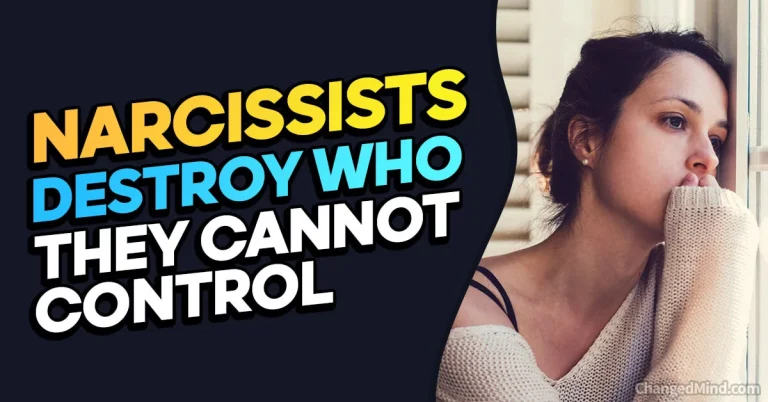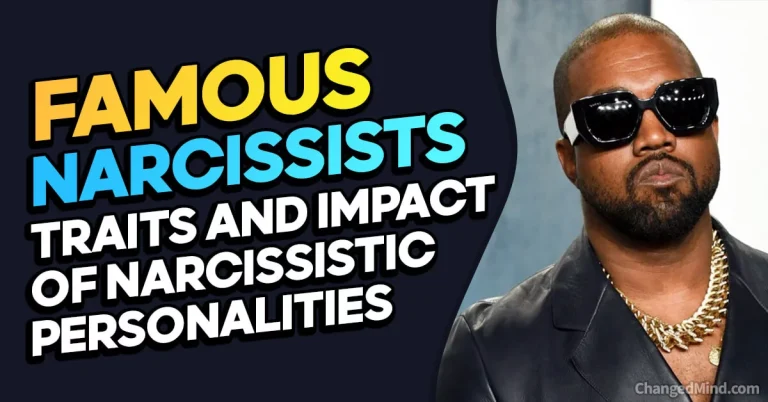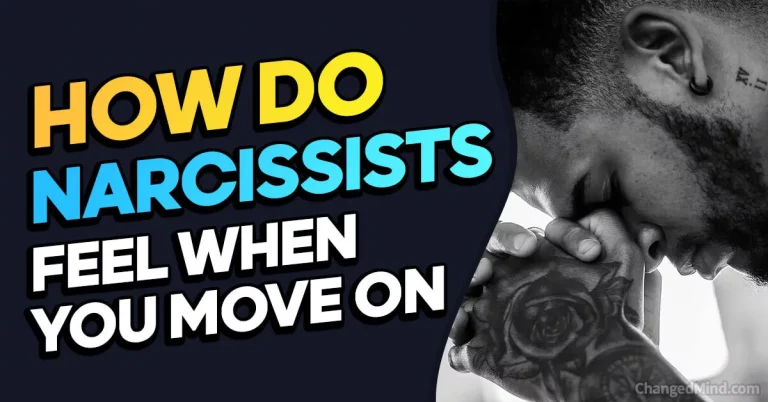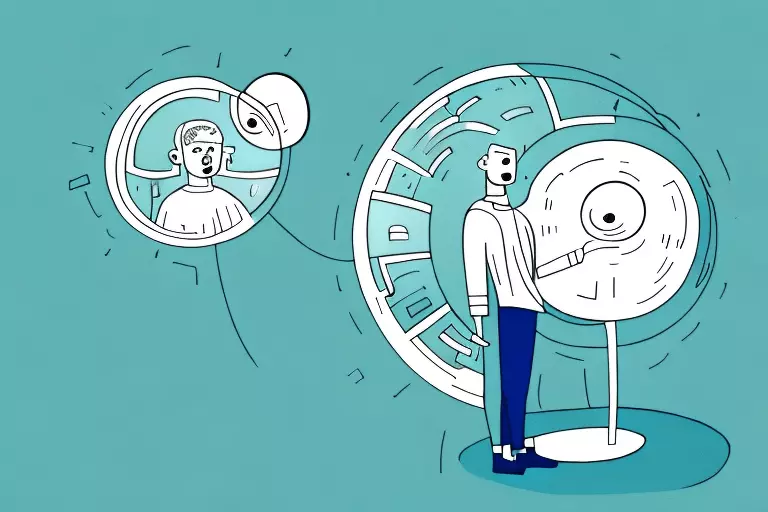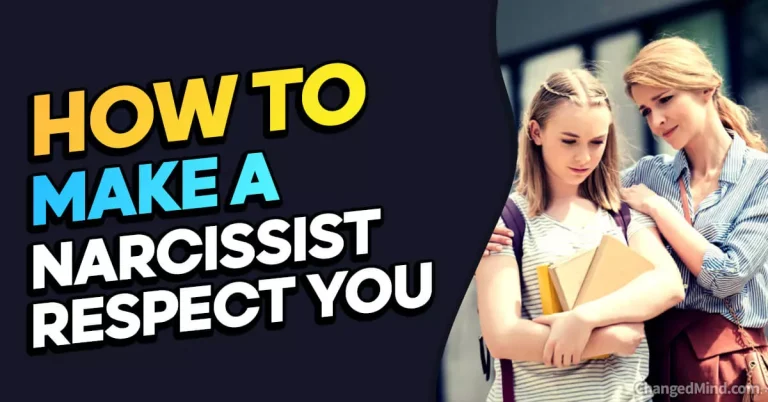Welcome to the wild world of narcissistic friendships, where self-absorption and drama reign supreme!
Have you ever wondered what goes on inside the mind of a narcissist when it comes to treating their friends?
Brace yourself, because we’re about to dive headfirst into the rollercoaster ride of narcissistic behaviors that can leave you scratching your head and questioning your sanity. From the grandiose to the manipulative, we’ll uncover the truth behind how narcissists treat their friends. So, fasten your seatbelts and prepare for a bumpy, yet enlightening journey!
How Do Narcissists Treat Their Friends?
Short answer: Narcissists treat their friends with a mix of charm, manipulation, and self-centeredness. But don’t worry, we’ve got all the juicy details and strategies to help you navigate these tricky friendships. So, keep reading to unveil the secrets of narcissistic friendship dynamics and discover how to protect yourself from the drama!
Characteristics of Narcissistic Friends
When it comes to narcissistic friends, their behavior is anything but ordinary. Let’s dive into some of the key characteristics that set them apart:
Superficial charm and charisma
Narcissistic friends have a knack for captivating others with their charm. They possess an uncanny ability to make you feel like the center of their universe, at least initially. Their charismatic demeanor draws you in, leaving you mesmerized by their charm offensive. It’s like they’ve mastered the art of “friendship seduction,” reeling you in with their magnetic personality.
But beware! Behind that enchanting facade lies a self-serving agenda. Their charm often masks their true intentions and self-centered nature.
Sense of entitlement and self-centeredness
Ever met someone who believes the world revolves around them? That’s a narcissistic friend for you. They possess an unwavering sense of entitlement, convinced that they deserve special treatment and attention from everyone around them.
In their self-centered universe, your needs and desires pale in comparison to their own. They expect you to cater to their every whim, and heaven forbid if you dare to divert the spotlight away from them. Their inflated ego knows no bounds, and they’ll stop at nothing to ensure their needs are met, regardless of the impact on your well-being.
Lack of empathy and emotional support
Empathy and emotional support? Not in the narcissist’s playbook. They struggle to understand or genuinely care about your feelings, experiences, or challenges. It’s as if they’re equipped with an empathy switch that’s permanently turned off.
In times of distress or vulnerability, don’t count on them to provide a comforting shoulder to lean on. They’re more likely to dismiss your emotions or redirect the conversation back to themselves. It’s disheartening, to say the least, when a supposed friend can’t muster even a modicum of empathy.
Manipulative behavior and exploitation
Narcissistic friends are masters of manipulation. They possess an uncanny ability to exploit others for personal gain. Your friendship becomes a means to an end for them, a tool to achieve their goals and fulfill their desires.
They may engage in subtle tactics like gaslighting, where they manipulate your perception of reality to maintain control. They’ll twist facts, distort the truth, and make you question your own sanity. It’s a mind game that leaves you feeling confused and disoriented.
Additionally, they’re skilled at extracting resources, be it your time, energy, or connections, for their own benefit. They’ll use their charm to tap into your resources, all while conveniently forgetting to reciprocate when you need their support.
Jealousy and competitiveness
Narcissistic friends possess an unhealthy dose of jealousy and competitiveness. They struggle to celebrate the successes and achievements of others. Instead of being genuinely happy for you, they’ll feel threatened and undermined by your accomplishments.
To protect their fragile ego, they’ll engage in subtle sabotage or belittlement, attempting to diminish your achievements. After all, their self-worth is intricately tied to their sense of superiority. Your success is a direct challenge to their inflated self-image, and they’ll do whatever it takes to maintain their illusory reign at the top.
Understanding these characteristic traits of narcissistic friends is vital to protect yourself from their toxic influence. Armed with this knowledge, you can navigate these treacherous waters with caution and set boundaries that safeguard your emotional well-being. Stay tuned as we delve deeper into the red flags and manipulative tactics used by narcissistic friends in the upcoming sections.
Narcissists and Friendship

What is a True Friendship?
Ah, friendship! That wonderful bond we form with others, built on trust, support, and mutual respect. True friendship is a beautiful thing, where both parties genuinely care for each other’s well-being and share life’s ups and downs together. But what happens when you throw a narcissist into the mix?
Do Narcissists Have Friends?
Narcissists, by their very nature, have a self-centered focus that makes it challenging for them to form and maintain genuine friendships. Their excessive need for admiration, lack of empathy, and manipulative tendencies make it difficult to establish the mutual trust and emotional connection that are the foundations of true friendship.
While narcissists may surround themselves with people, it’s often for superficial reasons. They may collect friends as trophies, using them to boost their self-esteem or to further their own agendas. However, these relationships are typically one-sided, lacking the depth and authenticity that define true friendship.
Expert Says
Associate Professor of Psychiatry, NY Presbyterian Hospital Weill-Cornell School of Medicine | Author, “The Power of Different“

Can Narcissists be Good Friends?
When it comes to being a good friend, narcissists usually fall short. Their self-centeredness and lack of empathy hinder their ability to provide the support, understanding, and emotional connection that true friendship requires. Their primary focus is on themselves, and they often view relationships as opportunities for personal gain rather than mutual growth and support.
While narcissists may display charm and charisma initially, it’s often a facade designed to manipulate others. Once their true intentions emerge, the friendship can become toxic and draining. They may exploit their friends, seek constant admiration, and lack the emotional depth necessary for meaningful connections.
Can Narcissists Have Long-Term Friendships?
Long-term friendships are built on trust, loyalty, and shared experiences. Unfortunately, narcissists often struggle to maintain these types of relationships. Their self-centered behavior and manipulative tendencies can strain even the most enduring friendships.
Over time, the toxic patterns of a narcissistic friend can take their toll. Their exploitative behaviors, lack of empathy, and inability to foster genuine emotional connections can lead to a breakdown in trust and the erosion of the friendship.
While some narcissists may be skilled at keeping people around for their own purposes, their friendships tend to be shallow and transactional. Once their friends no longer serve their needs, they are easily discarded or replaced.
In conclusion, while narcissists may have acquaintances and people who orbit around them, their ability to form and sustain true, healthy friendships is limited by their self-centered nature. Recognizing these dynamics can help you navigate your relationships and prioritize those connections that are built on mutual care, respect, and support. Remember, you deserve friendships that uplift and nourish your soul.
Red Flags to Identify Narcissistic Friends
Spotting narcissistic behavior in friends can be challenging, but knowing the red flags can save you from falling into their web of manipulation. Keep an eye out for these warning signs:
Grandiose self-image and excessive self-praise
Narcissistic friends have an inflated sense of self-importance. They believe they are superior to others and often exaggerate their achievements, talents, or abilities. Their conversations are peppered with self-praise, leaving little room for acknowledging the accomplishments or strengths of others. If your friend is constantly turning the spotlight on themselves and diminishing your own accomplishments, it might be time to reconsider the dynamics of the relationship.
Expert Says
Dr. Fumi Stephanie Hancock, PSYCHDNP
Founder, POB Psychiatry

Constant need for admiration and validation
Narcissistic friends crave an incessant flow of admiration and validation. They rely on others to fuel their ego and boost their fragile self-esteem. You might notice that they fish for compliments, seek constant reassurance, or demand attention and praise. It can feel exhausting to be their personal cheerleader, as their insatiable thirst for admiration can leave little room for reciprocity in the friendship.
Lack of interest in others’ feelings or problems
Empathy is a foreign concept to narcissistic friends. They are so consumed by their own needs and desires that they have little regard for the feelings or problems of those around them. When you share your joys or sorrows, they might offer superficial or dismissive responses, quickly shifting the conversation back to themselves. This lack of genuine interest in your emotional well-being is a clear indication of their self-centered nature.
Exploitative behavior and boundary violations
Boundaries? What boundaries? Narcissistic friends have a knack for disregarding personal boundaries and exploiting their friendships for personal gain. They may manipulate you into doing their bidding, taking advantage of your resources, connections, or skills without considering your own needs or limits. Their disregard for your boundaries can leave you feeling used and unappreciated.
Difficulty accepting criticism or accountability
When it comes to narcissistic friends, criticism and accountability are unwelcome guests. They have an intense aversion to acknowledging their faults, taking responsibility for their actions, or accepting any form of constructive feedback. If you dare to point out a mistake or challenge their behavior, be prepared for defensiveness, deflection, or even gaslighting. They will go to great lengths to protect their ego, even if it means distorting the truth or manipulating the narrative.
By familiarizing yourself with these red flags, you can identify narcissistic behavior patterns and make informed decisions about the friendships you choose to nurture. However, keep in mind that everyone can display narcissistic traits from time to time. It’s the frequency, intensity, and impact of these behaviors that differentiate a narcissistic friend from someone who may simply have their moments of self-centeredness. Trust your instincts and be mindful of the overall dynamics of your relationships.
How Do Narcissists Treat Their Friends?
Narcissists have a distinct way of treating their friends that sets them apart from healthy, supportive relationships.
9 Signs Your Friends is a Narcissist
Let’s explore the signs that can indicate if your friend is a narcissist:
1. They Don’t Like Advice
Narcissists have an inflated sense of their own superiority, making it difficult for them to accept advice or guidance from others. They believe they know best and may dismiss or belittle any suggestions or opinions that challenge their perceived expertise. If your friend consistently disregards your input and insists on their own way without considering alternative viewpoints, it could be a sign of narcissistic behavior.
2. Their Behavior is Extreme
Narcissistic friends often display extreme behavior that grabs attention and puts them in the spotlight. They may exaggerate stories or achievements to make themselves appear more impressive or unique. Their need for constant validation and admiration drives them to go to great lengths to be the center of attention, sometimes even at the expense of others.
3. They Will Remind You of What They’ve Done For You
Narcissistic friends have a tendency to keep a tally of the things they’ve done for you. They use these acts as leverage to assert their dominance and control in the relationship. They may remind you of their past favors or use them as a way to guilt-trip you into doing what they want. This transactional approach to friendship undermines the genuine care and support that should be the foundation of a healthy relationship.
4. Their Way or the Highway
Narcissistic friends have an overpowering need for control and often insist that things be done their way. They struggle with compromise and rarely consider the needs or desires of others. Their rigid approach can leave you feeling unheard, disregarded, and unimportant in the friendship. It becomes a one-sided dynamic where their wants and preferences always take precedence.
5. You Feel Drained When You Are With Them
Spending time with a narcissistic friend can be emotionally draining. They monopolize conversations, constantly seeking attention and validation. You may find yourself in a position of always listening and supporting their needs while your own emotions and concerns are brushed aside. If you consistently feel exhausted, drained, or emotionally depleted after spending time with them, it may be a sign of a toxic friendship.
6. They Talk About People Behind Their Backs
Narcissists are prone to talking negatively about others behind their backs. They may engage in gossip, spreading rumors, or criticizing others to boost their own self-esteem. This behavior not only damages the trust in your friendship but also raises questions about how they might speak about you when you’re not around.
7. The Narcissist is Self-Absorbed
One of the defining traits of narcissists is their extreme self-absorption. They constantly seek attention, praise, and admiration from others. Conversations often revolve around them, their achievements, and their desires. They may interrupt or redirect discussions to ensure the focus remains on themselves. This self-centeredness leaves little room for genuine connection or emotional support in the friendship.
8. They Have a Lack of Empathy
Empathy is a fundamental aspect of healthy relationships, but narcissistic friends often lack this quality. They struggle to understand or connect with the emotions and experiences of others. When you’re going through a difficult time, they may minimize your feelings or dismiss your concerns. This lack of empathy can leave you feeling isolated and unsupported in the friendship.
9. They Are Manipulative
Manipulation is a common tactic used by narcissists to control and influence those around them. They may employ various strategies such as guilt-tripping, gaslighting, or playing mind games to maintain their power in the relationship. Their manipulative behavior can leave you feeling confused, doubting your own reality, and questioning your worth in the friendship.
If you’ve noticed several of these signs in your friend’s behavior, it may be an indication that they have narcissistic traits. It’s important to evaluate the impact of this dynamic on your well-being and consider setting boundaries or seeking support if necessary. Remember, healthy friendships should be built on mutual respect, trust, and genuine care.
Emotional Manipulation Tactics Used by Narcissistic Friends
Beware! Narcissistic friends are masters of emotional manipulation. They have an arsenal of tactics designed to keep you under their control. Let’s uncover some of these manipulative strategies:
Gaslighting and manipulation of reality
Gaslighting is a favorite tool in the narcissist’s playbook. They excel at distorting your perception of reality, making you question your own sanity. They’ll twist facts, deny events that occurred, or reinterpret situations to suit their narrative. Gaslighting leaves you feeling confused, doubting your own memory, and questioning your version of events. It’s like being caught in a psychological maze with no clear exit.
Triangulation and manipulation through gossip
Narcissistic friends love to play puppet masters, pulling the strings of relationships around them. They’ll manipulate situations by pitting people against each other through triangulation. They might spread gossip, create conflicts, or plant seeds of doubt, all to maintain control and keep their friends off-balance. By strategically orchestrating these dynamics, they ensure their position as the puppeteer, pulling strings from the shadows.
Playing the victim and seeking pity
One of the most cunning manipulation tactics employed by narcissistic friends is playing the victim. They’ll portray themselves as the wounded party, seeking pity and sympathy. They’re skilled at garnering your attention and support, making you feel obligated to rescue them from their self-created dramas. By adopting the victim role, they manipulate your emotions, ensuring that you remain entangled in their web of control.
Silent treatment and withdrawal of affection
Narcissistic friends have a knack for wielding the silent treatment like a weapon. When you don’t conform to their expectations or challenge their behavior, they’ll punish you with silence. They withdraw affection, attention, and communication, leaving you feeling isolated and anxious. It’s a way for them to exert power and control, while also conditioning you to comply with their desires.
Love bombing and intermittent reinforcement
Love bombing is an insidious tactic employed by narcissistic friends. They shower you with excessive praise, attention, and affection in the early stages of the friendship. It’s like a whirlwind romance, where you feel like the most special person in their universe. However, once they have you hooked, they gradually reduce the intensity of their affection and attention. They become unpredictable in their behavior, intermittently providing rewards and punishments. This intermittent reinforcement keeps you invested in the friendship, hoping to recapture the initial magic.
Understanding these emotional manipulation tactics can help you break free from the grip of a narcissistic friend. By recognizing these behaviors, you can reclaim your power, set boundaries, and protect your emotional well-being. Stay tuned as we explore the impact of narcissistic friendships and strategies for dealing with them in the upcoming sections.
Do Some People Attract Narcissistic Friends?
It may seem puzzling, but certain individuals tend to attract narcissistic friends more than others. Let’s explore some of the reasons why this might occur:
People Who Were Raised by Narcissists
If you were raised by a narcissistic parent or had significant exposure to narcissistic behavior during your formative years, you might inadvertently attract narcissistic friends. Growing up in such an environment can shape your perception of what constitutes a “normal” relationship. The familiarity of narcissistic traits might feel comfortable or familiar, leading you to unknowingly gravitate toward similar dynamics in your friendships.
Empathetic People
Empathetic individuals, with their caring and compassionate nature, can unknowingly become targets for narcissistic friends. Narcissists are drawn to the empathy and emotional support that empathetic individuals provide. They see them as a source of validation, admiration, and attention. Unfortunately, this can create an unbalanced dynamic where the empathetic person continually gives while the narcissist takes.
People With Low Self-Esteem
Those with low self-esteem are more susceptible to forming friendships with narcissists. Narcissists prey on the vulnerabilities of others, and individuals with low self-esteem may seek validation and acceptance from anyone willing to offer it, even if it comes from someone with narcissistic tendencies. The narcissist’s initial charm and attention can be enticing for someone struggling with self-worth, but it often leads to an unhealthy and one-sided relationship.
People Pleasers
People pleasers, who have a strong desire to make others happy and avoid conflict, are prone to attracting narcissistic friends. Their accommodating nature and willingness to put others’ needs before their own make them ideal targets for narcissists who seek control and admiration. People pleasers may find themselves in relationships where they constantly cater to the narcissist’s demands, sacrificing their own well-being in the process.
While these characteristics and experiences can make individuals more likely to attract narcissistic friends, it’s important to note that anyone can find themselves entangled in such dynamics. The key is to recognize the patterns and work on developing healthier boundaries, self-esteem, and assertiveness skills.
Remember, you have the power to choose the friendships you engage in. By cultivating self-awareness, setting boundaries, and prioritizing your own well-being, you can attract and foster relationships that are built on mutual respect, empathy, and authenticity. Surround yourself with friends who uplift and support you, allowing you to thrive in healthy, fulfilling connections.
Impact on Friendships and Relationships
Narcissistic friends can wreak havoc on your emotional well-being and the overall fabric of your friendships and relationships. Let’s explore the detrimental impact they can have:
Emotional exhaustion and feeling used
Being in a friendship with a narcissist can leave you emotionally drained and exhausted. Their constant need for attention, their manipulative behaviors, and their self-centeredness demand a significant amount of your time and energy. You may find yourself catering to their needs while neglecting your own. Over time, this one-sided dynamic takes its toll, leaving you feeling depleted and unappreciated.
Erosion of self-esteem and self-worth
Narcissistic friends have a knack for eroding your self-esteem and self-worth. Their constant need for admiration and validation can make you feel like you’re never good enough. They may belittle your accomplishments, undermine your strengths, or subtly criticize your choices. Their behavior chips away at your confidence, leaving you questioning your own value and worthiness.
Isolation and loss of other meaningful connections
One of the insidious effects of narcissistic friendships is their ability to isolate you from other meaningful connections. They may employ manipulation tactics that isolate you from your support network or sow seeds of doubt about the intentions of other friends. As they strive to maintain control, they create an environment where you feel dependent on them, cutting you off from the outside world. This isolation can lead to a sense of loneliness and disconnection.
Increased stress and anxiety
Navigating a friendship with a narcissist can be a constant source of stress and anxiety. You may find yourself walking on eggshells, afraid to trigger their anger or face their manipulative tactics. The unpredictable nature of their behavior keeps you on high alert, always trying to anticipate their next move. The emotional rollercoaster of being in a friendship with a narcissist can take a toll on your mental well-being, leading to increased stress and anxiety levels.
Recognizing the impact of narcissistic friendships is crucial in taking steps to protect yourself and your other relationships. By understanding the toll it can have on your emotional health, you can empower yourself to set boundaries, seek support, and make informed decisions about the future of these friendships. Stay tuned as we delve into strategies for dealing with narcissistic friends in the upcoming section.
Strategies for Dealing with Narcissistic Friends
Dealing with narcissistic friends can be challenging, but there are strategies you can employ to protect yourself and maintain your well-being. Here are some effective approaches:
Setting and enforcing boundaries
Establishing clear boundaries is crucial when dealing with narcissistic friends. Communicate your expectations and limits in a calm and assertive manner. Be firm in expressing what you will and will not tolerate in the friendship. It’s important to remember that narcissists may push back against your boundaries, but consistency is key. Stay strong and stand your ground to protect your emotional well-being.
Building a support network
Surrounding yourself with a supportive network of friends and loved ones is vital when dealing with narcissistic friends. Seek out those who understand your experiences and can provide a listening ear, empathy, and validation. Having a strong support system can help you navigate the challenges of dealing with a narcissist and provide a safe space to share your frustrations and emotions.
Practicing self-care and self-compassion
Prioritizing self-care and self-compassion is essential in maintaining your own well-being. Engage in activities that bring you joy, relaxation, and fulfillment. Take time for self-reflection and explore practices like meditation, journaling, or therapy to process your emotions and build resilience. Remember to be kind to yourself and remind yourself that you deserve healthy and fulfilling relationships.
Seeking professional help, if necessary
In some cases, the impact of a narcissistic friendship may be severe enough to warrant professional assistance. Therapists or counselors can provide guidance, support, and strategies for navigating the complexities of these relationships. They can help you heal from any emotional wounds, build assertiveness skills, and explore ways to protect yourself from further harm.
Considering ending the friendship, if toxic
Ultimately, if the friendship becomes toxic and detrimental to your well-being, it may be necessary to consider ending it. While this can be a difficult decision, prioritizing your mental and emotional health is crucial. Evaluate the overall balance of the friendship, the level of respect and support you receive, and whether the relationship aligns with your values and goals. Remember, it’s okay to prioritize your own well-being and surround yourself with positive influences.
Dealing with narcissistic friends requires strength, resilience, and a commitment to your own well-being. By implementing these strategies, you can navigate the challenges posed by narcissistic behavior and protect yourself from further harm. Remember, you deserve healthy, mutually beneficial relationships that uplift and support you. Stay strong, set boundaries, and surround yourself with people who appreciate and value you for who you are.
Conclusion
Congratulations! You’ve delved into the intriguing world of how narcissists treat their friends. Let’s recap the key points we’ve covered:
- Narcissistic friends exhibit traits such as superficial charm, self-centeredness, lack of empathy, manipulative behavior, and jealousy.
- Red flags to watch out for include grandiose self-image, constant need for admiration, lack of interest in others’ feelings, exploitative behavior, and difficulty accepting criticism.
- Emotional manipulation tactics used by narcissistic friends include gaslighting, triangulation, playing the victim, silent treatment, and love bombing.
- These toxic friendships can have a detrimental impact, leading to emotional exhaustion, erosion of self-esteem, isolation, and increased stress and anxiety.
- Strategies for dealing with narcissistic friends involve setting boundaries, building a support network, practicing self-care and self-compassion, seeking professional help if necessary, and considering ending the friendship if it becomes toxic.
It’s crucial to prioritize your well-being in relationships. Remember, you deserve to be surrounded by friends who uplift and support you. Seek out healthy, mutually beneficial friendships that bring positivity into your life.
While dealing with narcissistic friends can be challenging, the knowledge and strategies you’ve gained will empower you to navigate these dynamics with confidence and resilience. Trust your instincts, take care of yourself, and surround yourself with people who appreciate and value you.
Always remember, you deserve healthy, fulfilling relationships that contribute to your happiness and growth. So go forth, embrace the lessons learned, and cultivate connections that bring joy and positivity into your life.

